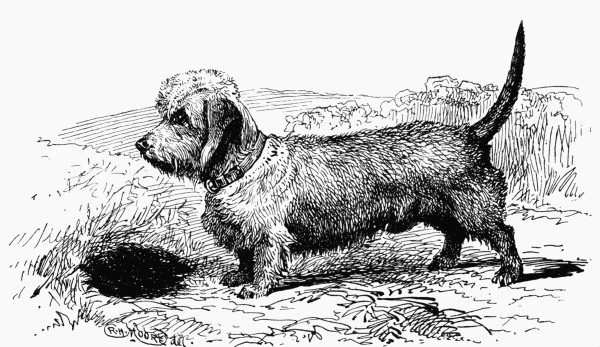
The word “weaselly” is generally used as an uncomplimentary way to refer to a person who is devious, sneaky, and scheming. You don’t want to be that person. It’s probably not considered to be much better if it’s used in reference to one’s dog, but that would be to misunderstand both the word, and the breed of dog for which the word is not only used, but in whose standard it appears in several registries.
The FCI standard for this breed reads: “Distinctive head with beautiful silky covering, with large, wise intelligent eyes offsetting long, low weaselly body. Short, strong legs; weatherproof coat.”
The United Kennel Club also describes this breed as “long and low, has a large head and a weaselly body, heavily boned legs and a weatherproof coat.” Furthermore, the Kennel Club in England also includes the word in its standard for the breed: “Distinctive head with beautiful silk covering, with alrge, wise, intelligent eyes offsetting long, low, weaselly body…”
The section on “general appearance” in this breed’s AKC breed standard, however, omits the word. It reads, “Originally bred to go to ground, the (breed name) is a long, low-stationed working terrier with a curved outline.”
“Weaselly” is not a dirty word and refers, logically, to the long, slender body and short legs of a weasel. In our heretofore unnamed breed, its body shape is unique to this breed. From its earliest times in the 1600s, the Dandie Dinmont Terrier was required to have ‘a long, low weaselly body’ (words that remain in most Dandie Dinmont Terrier standards to this day) because of the work it did, especially when hunting otters and badgers, both formidable fighters especially when cornered. Sometimes known as the “gentleman” of the terrier group due to a calm personality, Dandies can be all business when it comes to pulling prey out of its hole, and the feisty terrier comes through.
A marvelous article on the breed written by Amy Fernandez appears here.
Image: of Dandy Dinmont Terrier CH “Blacket House Yet” owned by Mrs. Rayner from the book, “All About Dogs” by Charles Henry Lane
